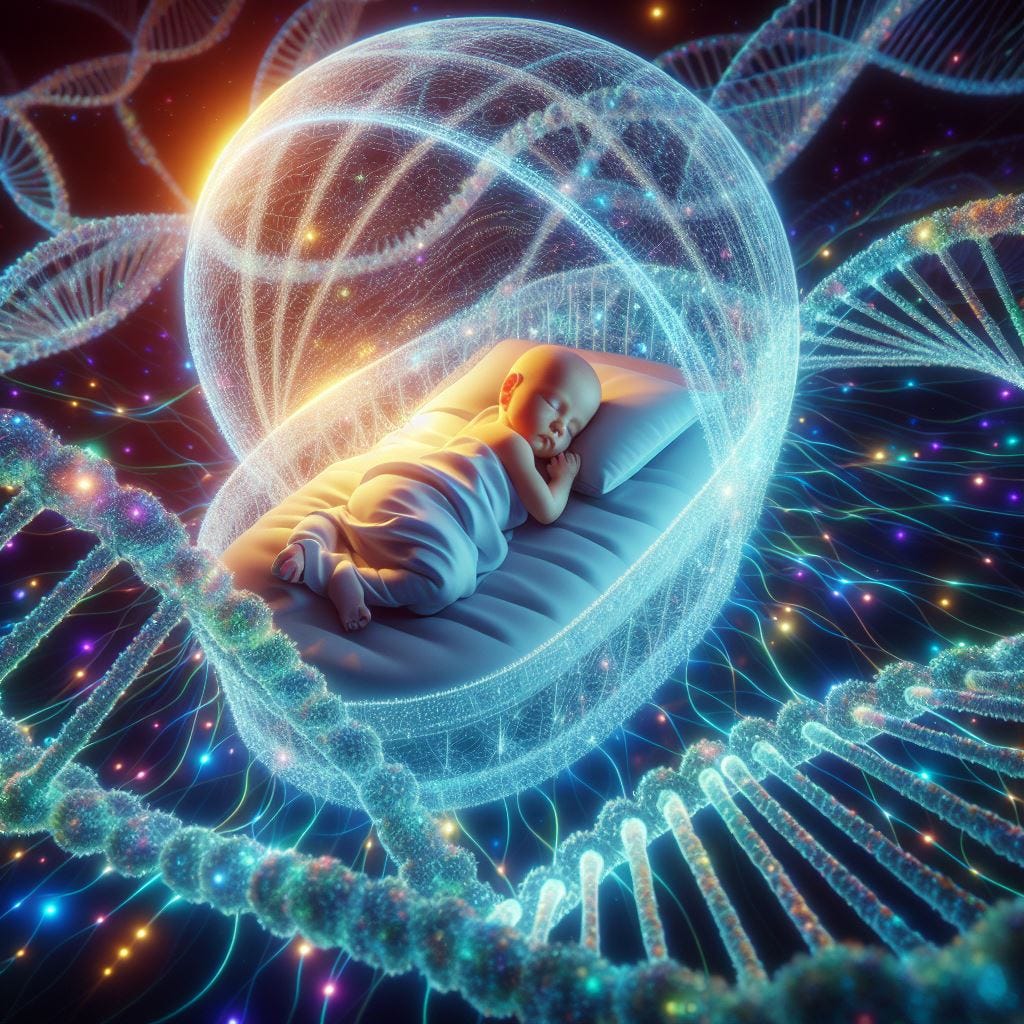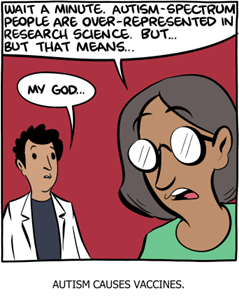This is a bit of a different article for Is It Genetic, but I currently only have 2 people paying me for this, so if one of them suggests an article, then I really should do it! Today we’re looking at designer babies, can you choose your baby’s genes? Should you? Gattaca reference?
The first babies with chosen genetic features were actually born over 30 years ago. In 1990, Handyside, et al. 1 reported the first babies successfully born following preimplantation genetic testing (PGT), the process where a small number of cells are removed from embryos following in vitro fertilisation (IVF) for genetic testing prior to implantation. These babies were born to mothers with a family history of X-linked disorders that primarily affect boys. The scientists tested the embryos for the presence of the Y chromosome and implanted only embryos that lacked it, so girls (at least genetically). In Australia and the UK, sex selection is only legal in the cases of these X-linked disorders, however some countries, including the US, allow you to choose bubs (genetic) gender simply because you want to.
PGT now can detect a large number of genetic disorders, the UK’s Human Fertilisation & Embryology Authority lists over 1500 different disorders that are currently approved or awaiting approval for PGT.2 These are all monogenic disorders, one gene causes the problem, and it needs to be a serious problem that is highly likely to occur, ethically I think most people can agree this should be allowed. Slightly more controversial, the UK and Australia both allow genetic ‘saviour siblings’ in some cases. When a child is sick and needs a stem cell donation, parents are allowed to choose embryos that are likely to be compatible, essentially birthing a child to become a cell donor. This is based on the HLA genes I described in the food allergy article. Even more controversial is selection based on complex traits, things like Type 2 Diabetes, heart disease and even obesity. I was not surprised to find out that compared to Australia and the UK, the US is basically the Wild West when it comes to PGT regulations.3 A US company named Orchid advertises as being able to screen for autism, numerous cancers, diabetes, heart disease, inflammatory bowel disease, Alzheimer’s, bipolar, schizophrenia and numerous others. Even worse, The Fertility Institutes advertises being able to choose baby’s eye colour, which is just gross.
Here is probably a good place to go on a bit of a rant. I fully support PGT in the case of serious, life-limiting monogenic diseases, and HLA matching I am ok with as long as there is counselling in place for all involved, but gender preferences, complex traits and especially superficial traits like eye colour are a massive no. Firstly, these services are prohibitively expensive and thus not an option for the middle and lower classes, if these services do as they advertise, then it would further inequality and comparatively increase the healthcare burden on the poor. The solution to this would be to make it widely available to everyone, but that would cause a raft of other problems, which leads to my second issue: the whole icky eugenics thing. I’m still shocked that you can choose eye colour in the US, if that is allowed it seems that hair colour will be next, and then we’ll have a host of blond haired, blue eyed Aryan children running around...
This is somewhat linked to my third issue, decreased diversity. As an example, not many people would ‘choose’ to have an autistic child because of the challenges that come with raising one. But due to their unique way of thinking, people on the spectrum have contributed so much to the world. People on the spectrum are overrepresented in the sciences, and it’s been speculated that such great geniuses as Albert Einstein and Isaac Newton were both autistic.4
Saturday Morning Breakfast Cereal
Then there’s the arts. Do you really want to live in a world without Burning Down the House?5
But decreased genetic diversity would not just impact science and the arts, it could in fact be dangerous to the human race. Genetic diversity is very important for any population as it helps protect against threats, such as changing environment and pandemics. Some of the ‘bad’ genetic variants that PGT looks for actually protect against different diseases in people who have one copy of the gene; mutations that cause sickle cell anaemia protect against malaria,6 while carriers of the cystic fibrosis gene may be protected against tuberculosis.7 When you start looking at complex traits with many genes, who knows what sort of unknown benefits would be weeded out. Then there’s traits like obesity. Like autism, currently not many people would choose to have a child whose genes encourage them to put on weight, but what would happen if say global warming or nuclear war wiped out half our food supplies? Then suddenly genetically ‘thin’ people are at risk of starvation, while people with excess body fat are better equipped to survive periods with limited foodstocks.
Ok rant over. If you need any more convincing that ‘designer babies’ for anything cosmetic or complex is a bad idea, just watch Gattaca, it’s a good movie! Back to the science, so far I’ve only looked at PGT, where you can only choose from embryos that are created only from random combinations of the parents’ DNA. In the future, will we be able to edit a baby’s DNA to be whatever we want it to be? Well, it may already be possible. You may remember back in 2018 when a Chinese scientist announced the birth of a set of twins that had genetically enhanced protection against HIV using CRISPR gene editing. At the time I remember questions about whether it was real, but the scientist, He Jiankui, was sentenced to 3 years in prison for “illegal medical practice,” with two colleagues also jailed. The ‘CRISPR babies’ would now be 5 years old, but not much is known about them. However, it is known from that CRISPR did not only affect the gene they targeted, but also had off target effects which can be unpredictable and theoretically could cause cancer or other diseases. There was also evidence that the genetic edits differed from cell to cell, creating what is known as mosaicism which can cause other health problems.9 The whole scandal did not do great things for the reputation of gene editing, and I highly doubt CRISPR babies will be a common thing anytime soon. In the future, I think it will be possible, especially as gene therapy post birth becomes more widespread, which you can read about here. For embryos, I hope it will only occur for those nasty monogenic diseases, but we will have to wait and see.
References
1. Handyside AH, Kontogianni EH, Hardy K, et al. Pregnancies from biopsied human preimplantation embryos sexed by Y-specific DNA amplification. Nature 1990;344(6268):768-70. doi: 10.1038/344768a0 [published Online First: 1990/04/19]
2. Human Fertilisation & Embryology Authority. PGT-M Conditions. https://www.hfea.gov.uk/pgt-m-conditions
3. Ginoza MEC, Isasi R. Regulating Preimplantation Genetic Testing across the World: A Comparison of International Policy and Ethical Perspectives. Cold Spring Harb Perspect Med 2020;10(5) doi: 10.1101/cshperspect.a036681 [published Online First: 2019/09/12]
4. Muir H. Einstein and Newton showed signs of autism. New Scientist 2003. https://www.newscientist.com/article/dn3676-einstein-and-newton-showed-signs-of-autism
5. Taylor T. How David Byrne helped to change public perception of Autism. Far Out Magazine 2021. https://faroutmagazine.co.uk/how-david-byrne-helped-to-change-public-perception-of-autism/
6. Eridani S. Sickle cell protection from malaria. Hematol Rep 2011;3(3):e24. doi: 10.4081/hr.2011.e24 [published Online First: 2011/10/19]
7. Poolman EM, Galvani AP. Evaluating candidate agents of selective pressure for cystic fibrosis. J R Soc Interface 2007;4(12):91-8. doi: 10.1098/rsif.2006.0154 [published Online First: 2006/10/04]
8. Cyranoski D. What CRISPR-baby prison sentences mean for research. Nature 2020. https://www.nature.com/articles/d41586-020-00001-y
9. Gutierrez N. What's next for the gene-edited children from CRISPR trial in China? New Scientist 2022. https://www.newscientist.com/article/mg25533930-700-whats-next-for-the-gene-edited-children-from-crispr-trial-in-china/





